Information Overload and Shortage of Healthcare Professionals
Brunno Falcão
3 min
•
6 de fev. de 2024
In 2016, the British scientific magazine Nature reported that the health sector produced more than 1 million scientific articles annually, and another study indicates that by 2030, the world will have 15 million fewer doctors than necessary. In a world where information is abundant but time is scarce, professionals from different areas, especially in healthcare, face the growing challenge of keeping up to date with the latest discoveries and innovations. Information overload, affecting everyone from ecologists to global health professionals, has intensified with the exponential increase in scientific publications. In the biomedical field, more than 1 million articles are added annually to the PubMed database — about two per minute. For researchers already burdened with lab and field work, project writing, publishing, and other time-consuming activities, navigating this growing data deluge has become a secondary task. Nature Magazine explored that researchers at the University of Victoria, Canada, dedicate up to 8 hours a week to filter relevant information amidst a flood of data. Imagine how difficult it is for a doctor already in the field to care for patients, save lives, and keep up to date with the latest publications. Keeping up to date seems to be a difficult task amidst such busy schedules. At the same time, a WHO study projects a global deficit of 15 million health professionals by 2030, exacerbated by growing demand in upper-middle-income countries. This scarcity contrasts with the avalanche of publications and data, creating a paradox in which excess information does not translate into better health coverage or efficient research. You have more and more information, more access to it, more qualified professionals, but at the same time, the number of illnesses and sick people only increases. In its edition, Nature magazine presents some strategies for doctors to stay current. However, I add that, in my view, such suggestions seem somewhat outdated, especially when we consider the unexplored potential of artificial intelligence to improve the learning process. • Don't overwhelm yourself trying to read everything: If an article is revolutionary or highly relevant to your field, it will inevitably be highlighted in other media channels and emerge in your keyword searches later. Trust the natural filtering of what is essential. • Dedicate a specific time to reading: Establish the habit of setting aside at least one hour, three times a week, exclusively for reading. This time should not be for superficial reading but a deep dive into previously selected materials, such as an insightful commentary or a detailed, data-rich study. • Engage in seminars and conferences: (Here's my conflict of interest) These events are essential to expanding your worldview and avoiding the tunnel vision often accompanying the isolated study of specific topics. Contacting and exchanging ideas with other professionals enriches your perspective and knowledge. Our goal is to accelerate the evolution of this learning model, always attentive to opportunities to integrate new technologies and approaches, such as artificial intelligence, to optimize the educational process in medicine. Given these data, we are experiencing a substantial global paradox. You have more and more information, more access to it, and more qualified professionals, but at the same time, the number of illnesses and sick people only increases. Science Play appears like a beacon in the ocean of data, utilizing artificial intelligence and advanced algorithms to personalize each user's experience. This allows researchers and healthcare professionals to efficiently filter relevant publications and data, saving time and enhancing the ability to research and make informed decisions in the field of global health. By simplifying content curation, Science Play alleviates information overload and paves the way for greater research collaboration and efficiency, representing a significant advancement in healthcare research and practice. Keep updating... Suggested Reading: Brunno Falcão: Positioning, Marketing and Sales Suggested Reading: Brunno Falcão teaches you how to shape your results in your profession and life
